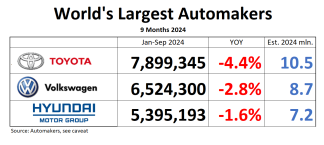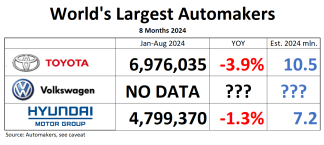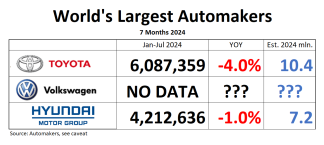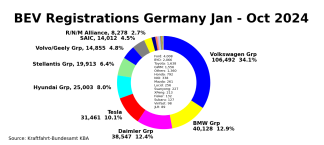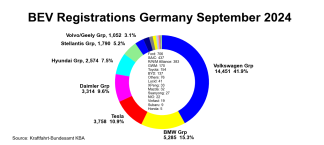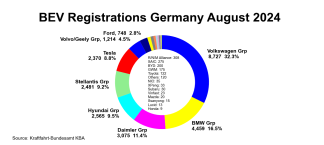As the Chinese New Year (where all of China pretty much shuts down for pretty much a month) edges closer, the deal to provide PSA Peugeot Citroen with a desperately needed capital injection is edging closer. The bottom line is that PSA will be saved by two governments, the French and the Chinese. The French do the deal to preserve jobs and prestige. It will be interesting to see what the Chinese will make out of it.
Currently, the deal looks like China’s Dongfeng Motors and the French government will take matching stakes of PSA, while the holdings of the Peugeot family are diluted down to the same stake.
According to Reuters, the size of the matching stakes is “likely between 10 percent and 15 percent,” but “will depend on the deal pricing and market conditions.” Also according to Reuters, “Thierry Peugeot’s eventual replacement by a new independent chairman is now a given.” If you’d ask the French government, they would put a senior civil servant in charge, Louis Gallois, who conveniently already sits on the Peugeot board. Board meetings won’t be fun when three allegedly equal partners sit around the table, and two are governments.
Dongfeng Motors is not just one of the largest Chinese automakers. Dongfeng’s majority owner is China’s central government. It is the government’s banks that finance the deal.
When the deal goes through, this would represent the first time that a major Chinese automaker acquired a significant stake in a major overseas carmaker.
Sure, there had been previous forays abroad, such as the Volvo purchase by Geely, or the Rover deal, or Manganese Bronze, but they were essentially fire sales which so far did not come to much. PSA on the other hand may be down, but it still is Europe’s number two carmaker. Dongfeng buys into PSA’s R&D, product planning, branding, marketing know-how.
China’s government has become increasingly frustrated with the inability of its auto industry to make significant inroads abroad, and it looks like Beijing is trying to do something about it. The Chinese government had hoped it would learn the art of the auto business by making joint ventures mandatory for all overseas automakers who want to produce in China. Dongfeng itself has a large number of JVs , with Honda, Nissan, Renault, Kia, and of course Peugeot.
For a long time, it was regarded as a given that China would eventually say “xie xie” to foreign automakers, kick them out of the country and flood the globe with Made in China cars. It did not work out that way. All Chinese automakers learned from the JVs is that R&D is not important, because new models miraculously come from overseas design bureaus. China’s market is huge and growing. As a large Chinese automaker, you are not forced to go abroad, like the Japanese or the Koreans were. It is much easier to take the latest product plans from Detroit, Wolfsburg, or Yokohama, to build them in large numbers and to sell them into a home market with double-digit growth rates and a very affectionate government.
Dongfeng was founded in 1969 at the behest of Chairman Mao. It was intentionally placed into the Chinese hinterlands as a part of the Third Front strategy. Now, Dongfeng appears to spearhead a new strategy: Go abroad, and if you can’t fight them, buy them.
PS: PSA’s global deliveries for 2013 were down 4.9 percent, while those of rival Renault rose 3.1 percent.

